Urban Design
Lehr- & Forschungspersonal
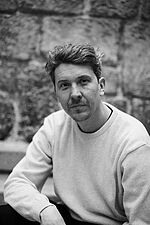
Prof. Dr. Jamie-Scott Baxter (Urban Design and Urban Development)
Jamie-Scott Baxter is guest professor for urban design and urban development at HafenCity University Hamburg (Oct.25- Oct. 26). At the intersection of design and science, Jamie’s work critically questions the possibilities of urban cohabitation in a planetary age. Addressing this, specific foci include the staging and replication of urban natures, the spatialisation of human-nonhuman relations (especially plant-human) and, more recently, the political ecologies of multispecies health (multispecieshealth.com).
Empirically, Jamie has examined these concerns in botanical gardens in Berlin, UK, and Rio de Janeiro (with Séverine Marguin), the spread of fungal plant pathogens in UK, and the self-organisation of material-discursive infrastructures spanning rural-urban space in Portugal, Austria, Brazil, Germany and Indonesia (e.g. riparianstruggles.org). In an ongoing project with Laura Kemmer and David Sperling (DAAD-CAPES PROBRAL), Jamie leads the research group “Planetability” which, through multiple empirical cases in Germany and Brazil, theoretically considers spatial-political forms of urban planetary cohabitation through the interlinked fields of planetary health, planetary thinking, and planetary transformation. He is an associate member of the CRC 1265 Refiguration of Spaces in Berlin and since 2024, visiting professor at the Institute for Advanced Studies at the University of São Paulo.
Jamie is joint executive editor at the journal Architecture and Culture. Recent publications include “Spacetimes Matter: A Collection of Mapping Methodologies” published by Jovis Verlag, Berlin.
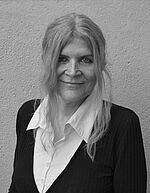
Prof. Dr. Regula Valérie Burri (Science and Technology Studies)
Regula Valérie Burri is Professor in science and technology studies (STS) at HCU Hamburg, Germany. She was a Visiting Research Fellow at Harvard University, a Feodor Lynen Research Fellow of the Alexander von Humboldt Foundation, and a guest professor at University of Vienna. Her research interests focus on the social, political, and cultural implications of science and technology, and involve topics like (visual) knowledge and the intersections of science and art, and cultures and the governance of science and technology. She is the founder of artLAB, an experimental research and teaching format involving art practice. She has been a co-director of a postgraduate program on artistic research in Hamburg, and the director of an art research project on visions of artificial intelligence.
She received her PhD from Technical University Berlin (with honors). After completing her undergraduate studies at the University of Bern, and an art degree at fhnw Basel, she was a Swiss National Science Foundation research fellow at EHESS and Collège de France, Paris, at TU Berlin and at the Massachusetts Institute of Technology – MIT. She was a member of the graduate school and a postdoctoral research associate at Collegium Helveticum, ETH Zurich and in the University of Basel´s science studies program. Regula was a researcher in several projects of the Swiss Science and Innovation Council (SSIC), and of the ETH Zurich and the University of Zurich.
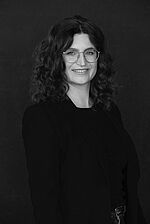
Prof. Dr. Hanna Göbel (Methods of Urban Practice)
Hanna Göbel is professor of „Methods of Urban Practice" (MuP) since 2025. She previously worked as an acting professor for "Urban Anthropology and Ethnographic Methods" at HafenCity University between 2022-2024. Her research focus crosses urban studies, anthropology and sociology of the body, cultural sociology and cultural studies, science & technology studies, ethnographic methods. She is a sociologist and has worked as an academic member of staff at Universität Konstanz and Universität Hamburg. Currently, she works on bodily dis/abilities and (digital) technologies, aesthetic diversity of forms in society and design (together with Sophia Prinz, ZHdK Zürich), and on a sociology of audiences at the intersection of urban spaces and digital publics.
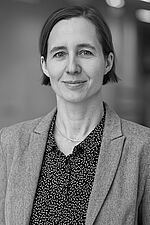
Prof. Dr. Monika Grubbauer (History and the Theory of the City)
Monika Grubbauer is professor for History and Theory of the City at HCU Hamburg. She has a background in architecture and urban research. She teaches in the study programmes of urban planning, urban design and culture of metropolis. Her research centers on urban development and housing politics in different geographical contexts. She is spokesperson of the research training group "Urban future-making" funded by the German Research Foundation.
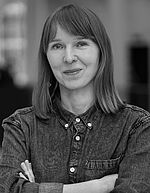
M.A. Anna Hentschel, Ph.D. Candidate (Urban Design)
Anna Hentschel is a spatial strategist and combines her design practice with research on experimental design methods. She co-founded the urban game design network Invisible Playground in Berlin and created cultural formats at the intersection of play and urban society for more than ten years. Recently, she co-developed the knowledge transfer project cross:play at the Game Design Department of the University of Applied Sciences Berlin (HTW), where she also taught interdisciplinary courses. Anna holds a diploma in stage design and a master’s degree in spatial strategies, was a scholarship holder at the Canadian Center for Architecture (CCA), the Goethe-Institut Villa Kamogawa Kyoto, and architect-in-residence at the Goethe-Institut Rotterdam. Since 2022, she has been a fellow at the DFG Research Training Group "Urban future-making: Professional Agency across Time and Scale" at HafenCity University Hamburg (HCU). Her PhD project focuses on the potential and evaluation of game-based methods for citizen participation in urban planning processes.
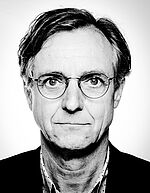
Prof. Dipl. Bernd Kniess (Urban Design)
Bernd Kniess is an architect and urban planner. In 2008, when he was appointed to the professorship of Urban Design at the HafenCity University Hamburg, he founded the M.Sc. program of the same name. Shortly after, together with a team of colleagues, he began to take on the project University of Neighborhoods. He is interested in understanding the contemporary city as a produced assemblage, its agencies in different modes of having become-ness and becoming, its translation into forms of diagrammatic representation and its transfer into procedures of relational practice. A particular focus of Bernd Kniess is the conception, design and realization of Living Lab projects such as the University of Neighborhoods (2008-14), Building a Proposition for Future Activities (2015-18) and Zukunftsstadt Friedrichstadt (2016-22). Bernd Kniess teaches in the formats Urban Design Project: Research and Design, Theoretical-Conceptual Foundations, Methodology, Intercultural Practice, Diagrammatics and the Hamburg Open Online University teaching and learning platforms ‘WohnWissen übersetzen’ and ‘Urban Types – of Houses and People’. In 2019-20 he held the Graham Willis Professorship at Sheffield School of Architecture. He has been a member of the North Rhine-Westphalian Academy of Sciences, Humanities and the Arts since 2009.
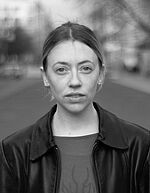
M.A. Antonia Lembcke, Ph.D. Candidate (Urban Design)
Antonia Lembcke is part of the research and teaching team Urban Design since 2022, having graduated in architecture from UdK Berlin and TU München. She currently also develops the project „soft spots: spaces of collective relevance and urban potential“ as a research associate in Architecture, at the chair Entwerfen, Raum- und Gebäudelehre at HafenCity University Hamburg.
Since 2025, she has been an Associated Doctoral Researcher of the RTG2725: Urban future-making. Her Ph.D. project, "Relational Architecture", explores alternative ways of understanding and practicing architecture through transformation. She is particularly interested in process-oriented architectures, in- and exclusions, and the (over)writing of stories and their actors through space.
Antonia co-founded the spätispäti collective in Berlin in 2019, which produces space by activating collective agencies, artistic practices, and performative actions. spätispäti is concerned with the un-learning of normative building practices and questions hierarchical and political structures manifested in space.
Dr. Yuca Meubrink (Urban Design)
Yuca Meubrink is a post-doctoral researcher within the BMFTR-funded project “Mehr Wohnen – Innovative Ansätze für gemeinschaftliches Wohnen und integrierte Quartiersentwicklung “. She also works as academic coordinator of the interdisciplinary research group “Constructing differently – to save resources and protect the climate” of Berlin-Brandenburg Academy of Sciences and Humanities.
She previously worked as a research and teaching assistant in the Metropolitan Culture program at HafenCity University Hamburg, where she also earned her Ph.D. with a dissertation on “Inclusionary Housing and Urban Inequality in London and New York City“.
She has been a visiting scholar at City University of New York and at Birkbeck, University of London. She is also a member of the editorial collective sub\urban. zeitschrift für kritische stadtforschung – a peer-reviewed, open access journal. Yuca Meubrink studied North American Studies, Cultural and Social Anthropology and Journalism in Berlin, Germany.
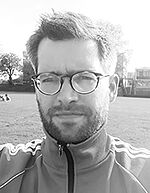
Dr. Fabian Namberger (History and the Theory of the City)
Fabian Namberger joined the Urban Design Team at HafenCity University Hamburg in March 2023. He is a post-doctoral researcher in the research training group ‘Urban future-making. Professional agency across time and scale’ (Prof Monika Grubbauer). In his current research, Fabian is interested in the spatially variegated processes of embedding digital platforms in urban space. Fabian’s PhD thesis ‘Uberising the Urban’ (Goldsmiths, University of London) examined how the operations of ridehail platform Uber have come up against the multi-scalar and variously uneven urban grounds of the ‘smart city’ of Toronto. During his PhD, Fabian was visiting graduate student at the Institute of Planning & Geography, University of Toronto (2018) and research fellow at the PUTSPACE project of Leibniz Institute for Regional Research Leipzig (2021).
Before his PhD, Fabian obtained a Bachelor of Arts in political science at Free University Berlin (2014) and a Master of Arts in ‘Critical and Creative Analysis’ at the Department of Sociology of Goldsmiths, University of London (2015). Both during his B.A. and M.A., Fabian was part of the research unit peace and conflict studies at Otto Suhr Institute, Free University Berlin where he published on global theories of war, postcolonial studies, critical geopolitics and cartography. Today, Fabian is member of the discussion group ‘Classes and Social Structure’ at Rosa Luxemburg Foundation and of the study group ‘Migration, Labour, Digitalisation and Racism’ at Humboldt University Berlin (Prof Manuela Bojadžijev). From 2017 to 2021, Fabian was editor at the online magazine kritisch-lesen.de to which he still contributes at (ir)regular intervals.



